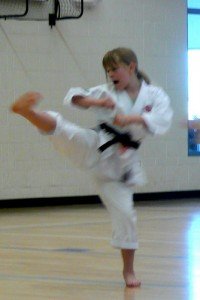Falling Short by Faith Van Horne
 I am happy to welcome Faith Van Horne back for another month with us! In today’s article Faith discusses motivation for writers and how to set and reach your goals, and what to do when you are falling short of those goals. Enjoy!
I am happy to welcome Faith Van Horne back for another month with us! In today’s article Faith discusses motivation for writers and how to set and reach your goals, and what to do when you are falling short of those goals. Enjoy!
***
Like nearly 300,000 other souls worldwide, I’m participating in National Novel Writing Month right now. Nanowrimo, as it’s known, is a collective push toward an impressive goal: writing the first draft of a 50,000 word novel in a month’s time. The goal is laudable, and also hefty. It’s meant to be big and brash to push participants beyond their normal limits. Challenge them to do more.
And I’m currently falling woefully behind.
Goals can be a two-edged sword. Their stated purpose is to motivate and encourage. Give you a solid objective to shoot for. And when you reach a goal, it can feel fantastic. However, not meeting a goal can be detrimental. Depending on how you view goals, missing one can be much more harmful toward your end objective than it needs to be.
When I was earlier along in my karate practice, I had an incredible problem with focus. I would try to hone my techniques while keeping my attention on the finer movements of my body. But after a short while, my mind would wander, and the techniques would end up sloppy, unfocused. I’d give myself a goal of throwing an awesome roundhouse kick on every attempt, only to end up flailing around, graceless. And the harder I tried to push that session, the more out of whack my kicks would be. Until I mentally threw in the towel and essentially stopped putting in the work for that session.
Part of the value in setting goals is examining why you put the goal there in the first place. In my karate class, I wanted to hone my focus and throw better kicks, every time. However, I didn’t always meet that goal. Over time, however, I did find my kicks improved, when I kept working at them.
Same with Nanowrimo. This is my first time seriously engaging in it. I’ve never completed the 50,000 goal within a month. However, that doesn’t mean I was a total failure.
I competed the first time because I’d been wanting to write a novel for years but had never completed one. Part of the reason was that I had no external focus for finishing; no deadline, no accountability. Participating in Nanowrimo forced me to write more than I ever had before. No, I didn’t finish in a month. And at the end of that month, I felt like a failure. But then I stepped back and looked again. I had written a fair hunk of that novel, and gotten further in the process than I ever had before. Rather than deleting the file, I took what I gained from setting that goal in the first place, and did eventually finish. And that novel went on to be published.
Over the past years, in terms of practice, I’ve been working much more intensely on my karate than I have been on my writing. In participating this year, my stated goal is to write 50,000 words. But I may not meet that goal. However, already this month, I’ve put more sustained work into a project than I have since completing my second novel. I’m still shooting for gold, but even if I don’t make it, I’ll keep going anyway come December.
***
 Faith Van Horne is the author of the young adult fantasy novel Slideways. Her collection of offbeat horror stories, Super Sargasso, is now available. She is currently working on another novel. In her free time, she practices karate, and even helps teach it a little. She also blogs at Scribatious (faithvanhorne.
Faith Van Horne is the author of the young adult fantasy novel Slideways. Her collection of offbeat horror stories, Super Sargasso, is now available. She is currently working on another novel. In her free time, she practices karate, and even helps teach it a little. She also blogs at Scribatious (faithvanhorne.






Faith, I love how you take your wisdom from karate. And good luck completing your first novel! It took me five years for me to do it! 🙂